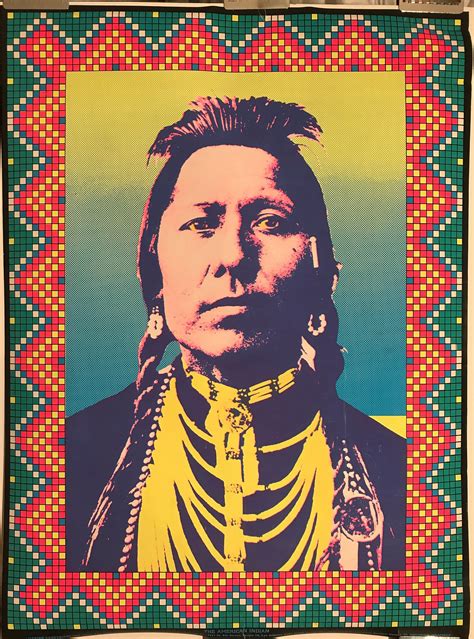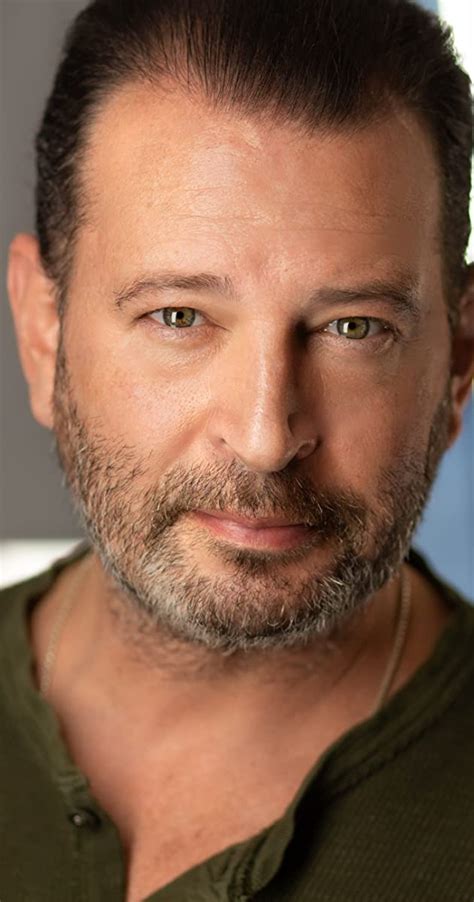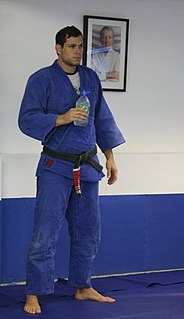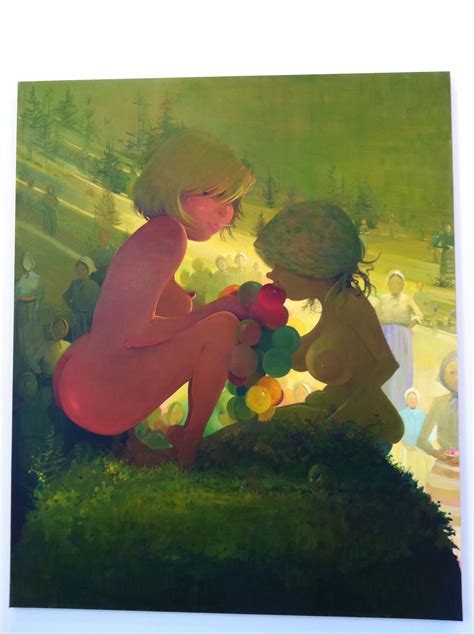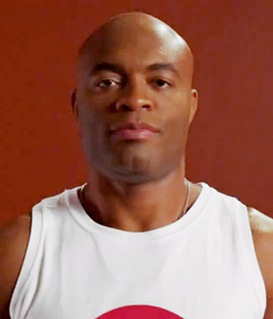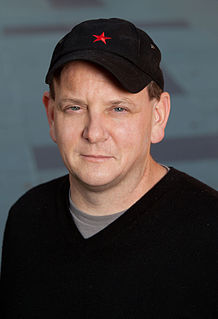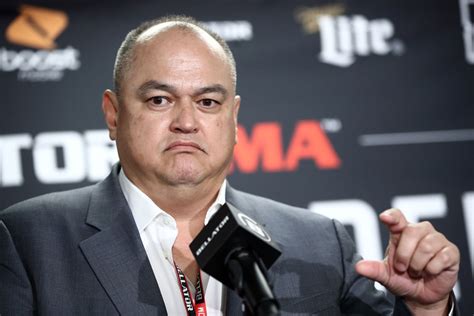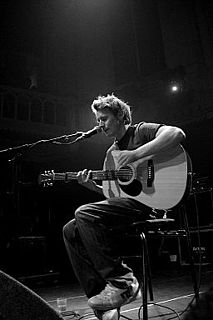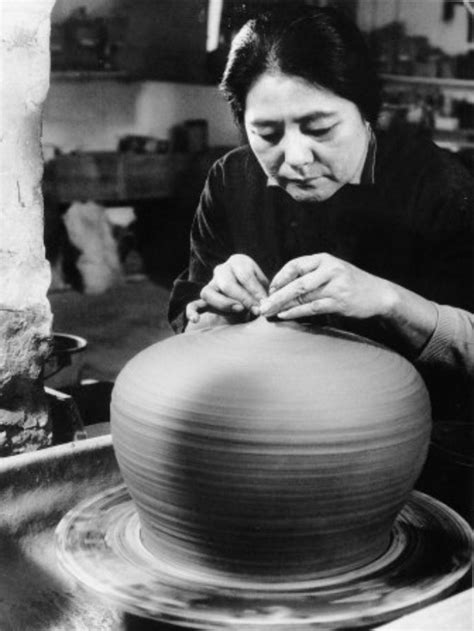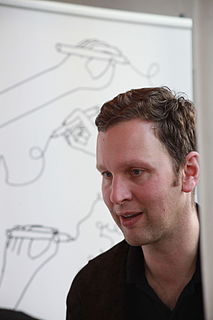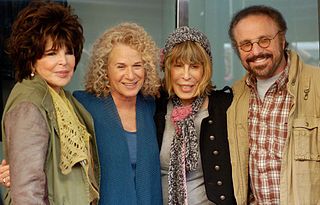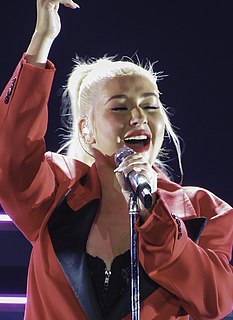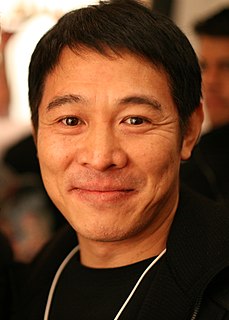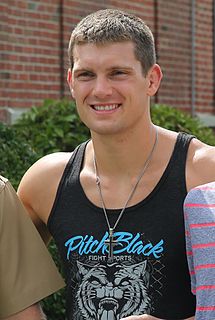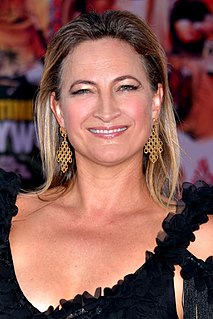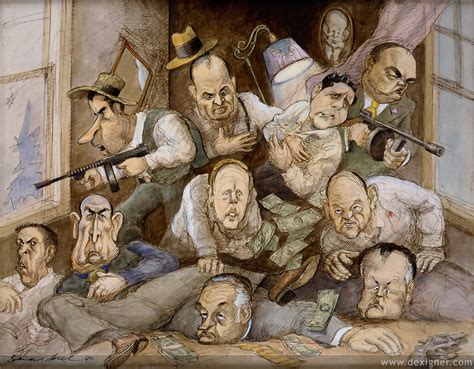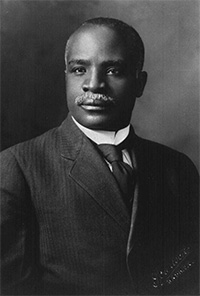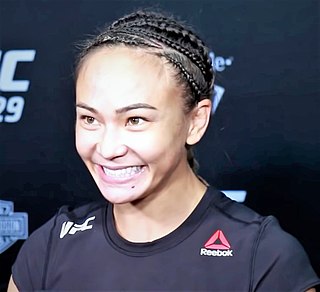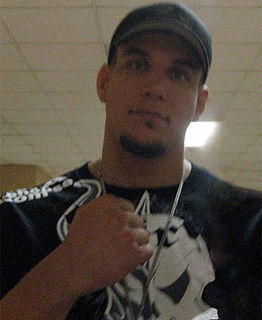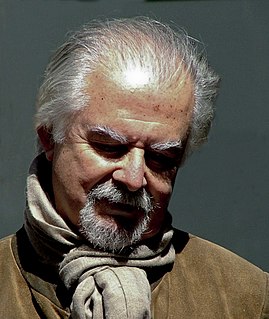Top 1200 Martial Artist Quotes & Sayings - Page 4
Explore popular Martial Artist quotes.
Last updated on December 21, 2024.
Forgiveness is like the martial arts of consciousness.
In Aikido and, other martial arts, we sidestep our attackers force rather than resisting it.
The energy of the attack then boomerangs back in the direction of the attacker.
Our power lies in remaining nonreactive. Forgiveness works in the same way.
When we attack back, and defense is a form of attack, we initiate a war that no one can win.
As an artist, illustrator, and photographer, most of my daily work was formed around the Art & Entertainment business, which was about packaging ideas that looked like they were crafted as artist ideas. In the distributed products, my artist credit was hidden inside the package of the artist or entertainment personality.
Contessa, a.k.a. Baboushka, was a leader in the Russian mafia. Hardnosed, ruthless... very much her own woman. She's a martial artist, marksman, and good with guns and gadgets as any good pulp spy should be. She's supported by her constant companion Gyorgy Gyorgyov, an old friend of her family who was, in fact, her KGB handler and inventor.
I was worried that I, the artist Morimura, would have conflicts with the participating artists and develop a strenuous relationship with them. But the actual experience was completely the opposite. The artists accepted my requests rather positively, because it came from a fellow artist. I strongly feel that the fact that my being an artist avoided the usual curator vs artist tension, and led to creating a positive atmosphere as well as developing a solidarity amongst artists and building a community for artists.
I mean when you go to a network and say, "We want to make a martial arts series in the future." And give them the pitch. And by the way, the only way to achieve the authentic Hong Kong martial arts we need a full-time fight team unit working concurrently, and we're hiring a Chinese fight team from Hong Kong. And they were like, "Great, let's go."
You get a world-class athlete like Hershel Walker, who was a Heisman trophy winner and did some amazing things, but he had a martial arts background. He did kickboxing. He had a combat sports background. It was just rekindling that training and that martial arts workout ethic. He got back into it and did quite well.
There’s no “correct path” to becoming a real artist. You might think you’ll gain legitimacy by going to university, getting published, getting signed to a record label. But it’s all bullshit, and it’s all in your head. You’re an artist when you say you are. And you’re a good artist when you make somebody else experience or feel something deep or unexpected.
As a 4-year-old, I saw two men competing in the ring, and I thought it was martial arts. I asked my parents if I could do martial arts. So, I was 5 or 6-years-old, and I was doing karate and jiu-jitsu. Later on, I started kickboxing. Then, it just progressed. I did a little bit of everything, but predominantly, I did kickboxing.
People often say, 'Ah, ultimate fighting is so violent,' but it's rooted in martial arts. Martial arts incarnate respect. You can't walk into a dojo and say to your sensei, 'Hey, salut tabarnac!' After every one of my fights I go and shake the hand of my opponent. I don't need to hate the other fighter to fight him well. It's a sport.
I am an artist, and I understand the pros and cons of being an artist, and the pressures of being an artist, and how much being an artist can be torture to people around you; you know, you friends and your family and how material you can be, and how it's hard to take criticism and all the things like that.
An artist is above all a human being, profoundly human to the core. If the artist can't feel everything that humanity feels, if the artist isn't capable of loving until he forgets himself and sacrifices himself if necessary, if he won't put down his magic brush and head the fight against the oppressor, then he isn't a great artist.
Back in the Bruce Lee era, and in my era, Kung-Fu stirred up a kind of frenzy, and many people were learning martial arts from us. But about a decade ago, Hollywood began bringing in a number of our action choreographers, including two from my own stunt crew, where they became martial arts directors. Now, a decade later, Hollywood has learned it all, so when you look at the action films they're making now, they all use our action, our martial arts, and then add to that their own technology which is ten times better than ours, and it has to leave us dumbfounded: how did they film that?
There's always someone kicking guns. We wanted ["Badlands"] to be a world without guns and bullets, where martial arts was the form of fighting and defense and attack. Martial arts is king in this world. That was the first thing. We didn't want it to be a period piece either. We felt those are overdone and stuffy. That was what lead us to explore that area of science fiction and future, a world we can create and control.
There questions of wanting to be an artist, and what does that mean, what makes you an artist? Are you an artist if you're in a gallery in New York and not an artist if you're doing it at home? Do you need legitimation to count? If you've been acculturated to believe that you have certain obligations - familial, social, human - if multitasking has been your forte and that's what's been praised and rewarded, where do you find the single-mindedness, the selfishness to do something like art? I think those are questions that arise differently for women and for men.
I was associated with the Artist Placement Group in the early 1970s and David Hall, the video artist, was an Artist Placement Group artist. I was completely broke at that time, and he said to me, "Come and do some teaching" - he was head of department at Maidstone College of Art. And I went and did a couple of teaching days and practically the only person who showed up was David Cunningham [Flying Lizard's main man], with all of this finished work
I took what worked for me and found I had a system that others were interested in and seemed to work for a wide number of people. It was recognised by other martial artists, grandmasters and such, and they gave me the recognition. I'm proud of my work in martial arts. I still teach but only once a week in a private class, and I train a couple more days a week.
Being an artist doesn't just mean you have a song. That doesn't make you an artist. The word 'artist' means so many different things, and I feel like to be a real one, you really have to do it all. The people that I think of as artists - Tyler the Creator, Childish Gambino, Kanye West - are doing the most.
The artist usually sets out -- or used to -- to point a moral and adorn a tale. The tale, however, points the other way, as a rule. Two blankly opposing morals, the artist's and the tale's. Never trust the artist. Trust the tale. The proper functions of a critic is to save the tale from the artist who created it.
I hope martial artists are more interested in the root of martial arts and not the different decorative branches, flowers or leaves. It is futile to argue as to which leaf, which design of branches, or which attractive flower you like; when you understand the root, you understand all its blossoming.
I've always been a fan of martial arts, even before I did jiu-jitsu tournaments. I did point karate tournaments and wrestled in high school. To me, it was just an evolution and mixed martial arts was the next step. I just wanted to compete and train in it. I had no illusions of it being a paying gig.


